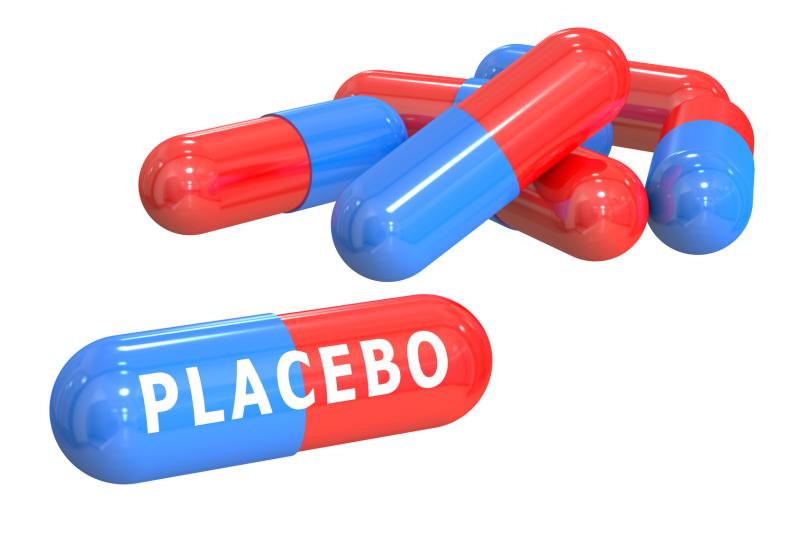 Why do placebos work?
Why do placebos work?In clinical trials of systemic therapy in atopic dermatitis (AD), the integration of double- and triple-blinding can lower placebo responses, according to the results of a systematic review and meta-analysis. Other means of achieving this include balancing of patient sex distribution, disallowing concomitant use of prescription topical therapy and having shorter study durations.
The investigators performed a systematic review and meta-analysis of randomized controlled trials examining the use of systemic therapy in AD published between 2007 and 2018. They searched the databases of Cochrane Library, Medline, Embase, Global Resource for Eczema Trials, Literature of the Latin American and Caribbean Health Sciences and Scopus.
Study selection and data extraction were carried out by two investigators. Multivariable mixed models were generated for the following: Cohen D of Eczema Area and Severity Index (EASI), SCORing Atopic Dermatitis (SCORAD), numeric rating scale (NRS)–itch and visual analogue scale (VAS)–itch, and Dermatology Life Quality Index (DLQI).
Sixty-four trials met the eligibility criteria. Higher placebo responses were associated with use of concomitant topical therapy prescriptions, study duration ≥3 months and fewer treatment arms for EASI, NRS- and VAS-itch, and DLQI.
For EASI, studies with a higher proportion of male patients, mild-to-moderate mean baseline EASI scores and no blinding had higher placebo responses. For NRS- and VRS-itch, the placebo response was increased in studies with higher proportion of male patients and moderate-to-severe mean itch scores at baseline.
“AD has a variable disease course and intermittent triggers, and responses to topical therapy vary, potentially affecting the magnitude of the placebo response in AD trials,” the investigators said.